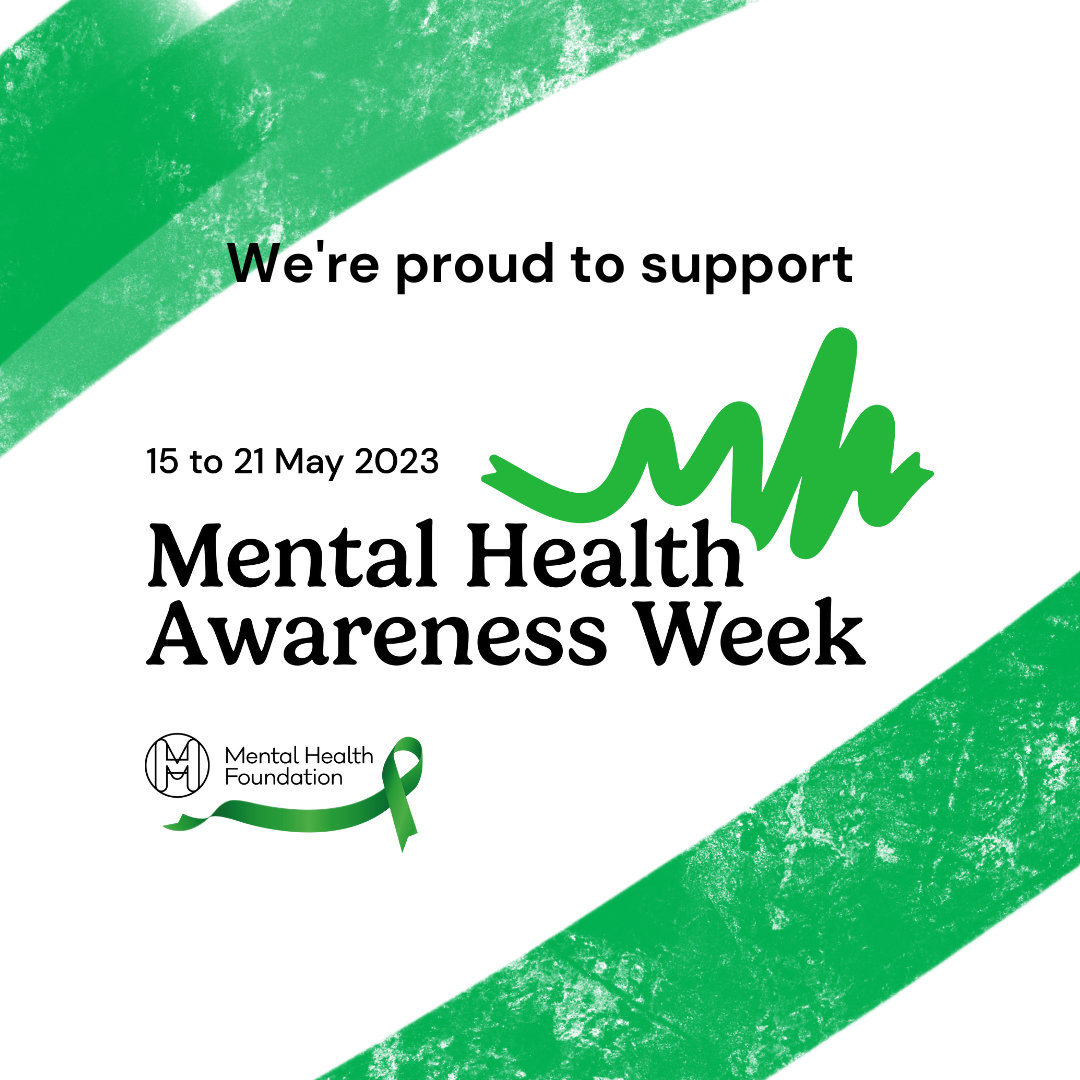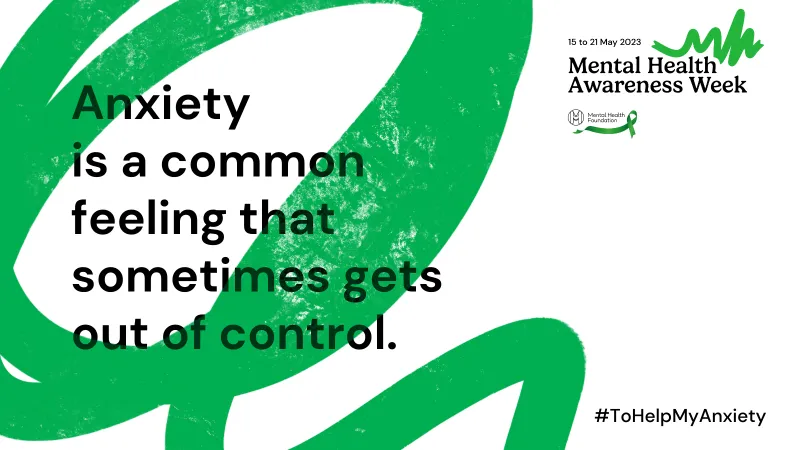
Mental Health Awareness Week 2023
15th – 21st May 2023 is Mental Health Awareness week, and this year, the theme is Anxiety.
As we continue to grow, we are looking into ways to ensure the support we can offer as a business in terms of wellbeing is communicated clearly to ensure everyone has access to advice, resource and a clear pathway. So, this week we are making plans to do just that. There are multiple resources out there and we want to bring some of them into one place, along with our internal support including ensuring our mental health first aider’s training is used to its full potential.
The theme of anxiety this year seems extremely fitting to the pressures we are all feeling at the moment with the cost-of-living crisis the nation sees itself in.
“Anxiety is something we can all experience from time-to time. There are lots of reasons why we get this feeling. It can be connected to a job, school, a relationship, social situations, how we feel about ourselves, or a change in our life.
If we don’t know how to cope with our feelings of anxiety, they can get out of control and stop us from doing the things we need or want to do. The more often and the longer we feel anxious, the more it can become a problem.”
The Mental Health Foundation suggests the following techniques to manage anxiety…
•Focus on your breathing – focusing on the feeling of your body as you breathe in and out can help you control your thoughts when having anxious thoughts. The 4-7-8 breathing technique is recommended – breathing in through the nose for 4 counts, holding for 7 and breathing out through the mouth, making a whooshing sound, for 8 counts. Repeat this for a total of 4 breath cycles.
•Get moving - exercise is a good way to deal with anxiety. This can be anything from gentle stretches, yoga or just going for a walk.
•Keep a diary – it’s important to not ignore our worries, taking time to record what’s happening in your life and how it’s affecting you can help understand what is triggering the anxiety. Sometimes allowing some ‘worry’ time can help by sitting and writing out these worries, as a way of getting them out of your head in the hope you can then carry on with your day.
•Challenge your thoughts – when you catch yourself ruminating (thinking of things over and over again) try to write down the thought and challenge it. Is this likely to happen, are you being realistic, have you had similar thoughts which have not turned into reality? This can make it easier to challenge the anxiety and stop it from overwhelming you.
•Get support for money worries - check out the Mental Health Foundation’s advice on looking after your mental health during the cost-of-living crisis and information of where to get practical support.
•Connect with people and talk about how you feel
•Try to get some quality sleep or rest
•Try to eat a healthy diet

